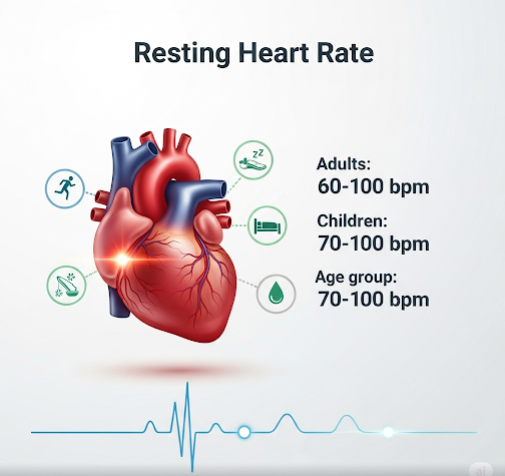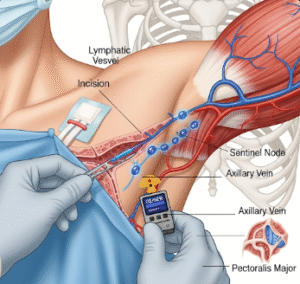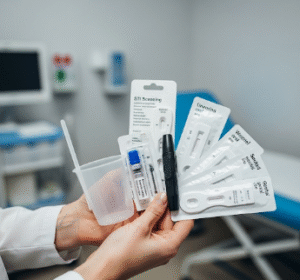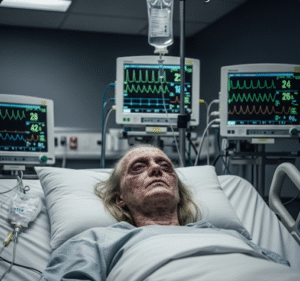Overview
Resting heart rate (RHR) is the number of heartbeats per minute when a person is at complete rest. It is an important indicator of cardiovascular health and overall fitness. Monitoring RHR can help detect potential health issues early.
What Is Resting Heart Rate?
Resting heart rate measures how many times your heart beats per minute while you are relaxed, typically measured after waking up or sitting quietly. It reflects the efficiency of the heart and the autonomic nervous system.
Normal Range
- Adults: 60–100 beats per minute (bpm)
- Well-trained athletes: 40–60 bpm
Factors Affecting Resting Heart Rate
- Age: RHR tends to increase with age.
- Fitness level: Better cardiovascular fitness usually lowers RHR.
- Medications: Beta-blockers and other drugs can reduce heart rate.
- Stress and anxiety: Increase RHR.
- Temperature: Higher temperatures and humidity can raise RHR.
- Body position: Sitting or lying down affects RHR readings.
- Health conditions: Thyroid disorders, anemia, or heart diseases impact RHR.
Why Is Resting Heart Rate Important?
- Indicator of heart health and fitness level
- High RHR may signal stress on the heart or underlying health issues
- Low RHR in athletes usually indicates efficient heart function
- Changes in RHR over time can help monitor fitness progress or detect problems
When to See a Doctor
- Consistently above 100 bpm (tachycardia) at rest
- Consistently below 40 bpm (bradycardia) without being an athlete
- Symptoms like dizziness, shortness of breath, or chest pain with abnormal RHR
How to Measure Resting Heart Rate
- Use a stopwatch or heart rate monitor
- Measure pulse at the wrist or neck after waking up or resting for 5–10 minutes
- Count beats for 60 seconds for accuracy
Improving and Maintaining Healthy Resting Heart Rate
- Regular aerobic exercise (walking, running, cycling)
- Stress management techniques such as meditation or yoga
- Adequate sleep
- Healthy diet and weight management
- Avoiding tobacco and excessive caffeine
Monitoring Resting Heart Rate in Korea
Korea offers advanced healthcare technologies:
- Wearable Devices: Smartwatches and fitness trackers for continuous monitoring.
- Medical Check-ups: Comprehensive cardiovascular assessments in clinics and hospitals.
- Personalized Health Plans: Developed by cardiologists and fitness experts.
- Telemedicine: Remote monitoring and consultation services.
- Public Health Programs: Education on heart health and preventive measures.
Korean healthcare providers emphasize the importance of regular RHR monitoring to promote heart health and early detection of cardiovascular issues.













